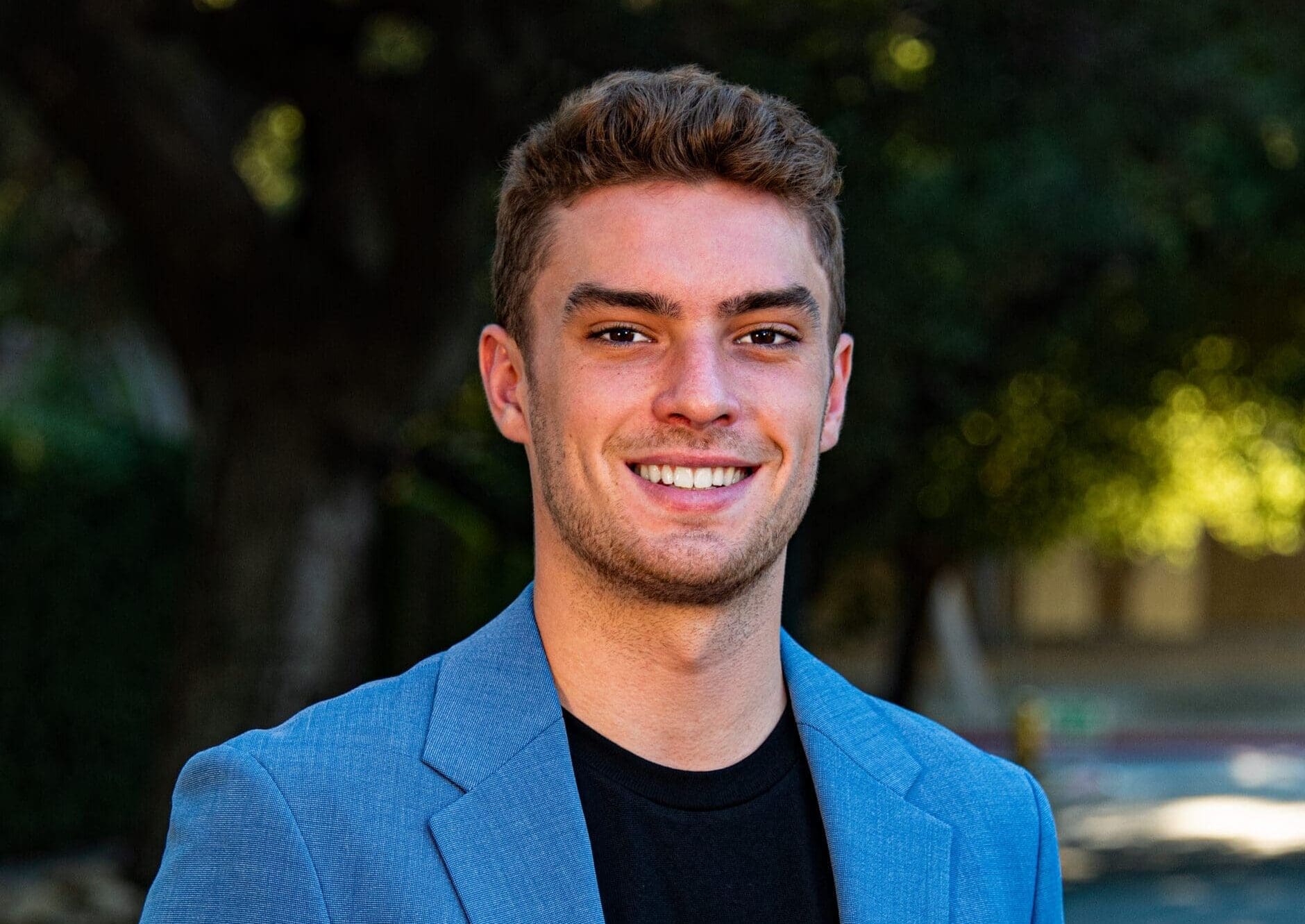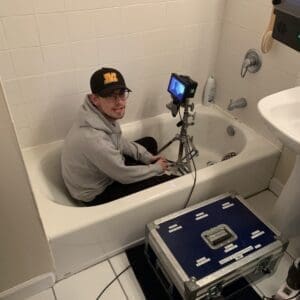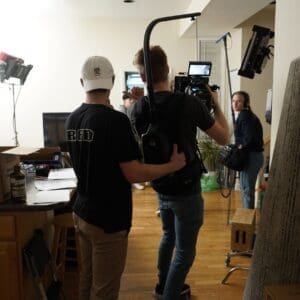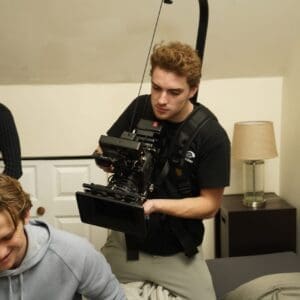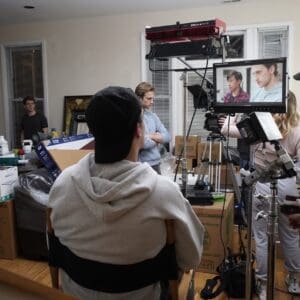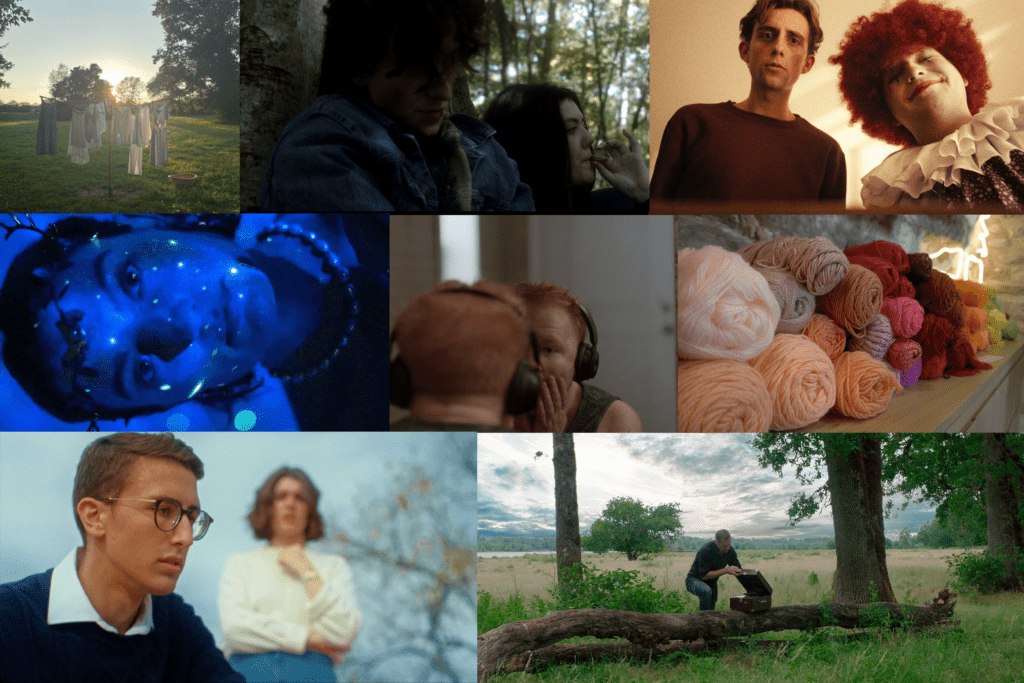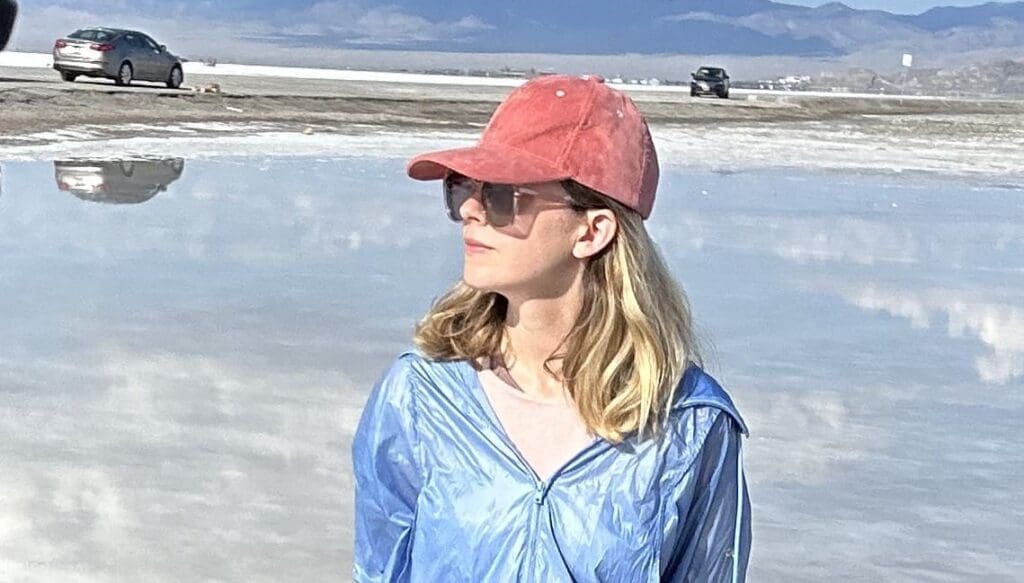Louisville Film Society: I feel like one of the most powerful aspects of Amphibia is the constant tension. Not only does it build really well, but it’s just always there, even in the small moments. There’s always an ominous cloud that holds weight. How did you accomplish that?
Ian Odermatt: I would start off by saying that I think that a super prominent aspect of the film is the score — the musical score, but also the total musical elements that were compounded together to create the soundscape. I worked with a composer named Kennoniah Dean Bellile. The two really important collaborators on this project were Caleb Stevens, the cinematographer, who actually introduced me to Kennoniah, and they were just instrumental to the success of the project. I worked with Kennoniah for multiple months, just going through probably more iterations of the score than you would have initially expected. He was just fabulous to work with. He created a lot of the score, especially toward the end, when you’re hearing identifiable musical instruments, and there’s melody and whatnot. He’s a talented musician.
However, I think an important component of the film, I don’t know what to call it, maybe soundscape is the right word? I personally added about 70, maybe 80 different royalty-free tracks of atmospheric tones — maybe just a single violin continual note type of deal. That, to answer your original question, is a really important aspect of creating that tension. But also leaving silence in areas where two characters are conversing. For example, when you first meet the Eric character. That conversation has no underscore. And that just lets the weirdness of Eric’s personality do the work.
I obviously don’t want to give out any spoilers, but thrillers are known for their twists and turns. Broadly speaking, what are the elements that make a good twist?
Well, I think it’s important to keep the audience on edge, hopefully the entire time, like you mentioned. However, it’s really important to not be too predictable. I think the first moment in the film that really starts to drive the story is when Eric appears, just out of nowhere. And that was a fun shot to shoot. And it took many different takes to get right. Having the Chris character move out of the way to reveal Eric is not something anyone could see coming and I think those unexpected moments can really drive the story and keep the audience on edge, wondering if there’s going to be another jump-scare.
How did you get into filmmaking?
I did video editing throughout high school. I’ve always been interested in narratives and storytelling. I had a little real estate filming business in high school. It wasn’t until I edited a movie trailer for the first time… movie trailers have always fascinated me and I’ve always been excited about them. But, I crafted a movie trailer for the first time back in high school and the process of crafting a narrative — a movie trailer is not just the process of condensing a story, but it’s also a really unique and complex process of building a unique reimagining and retelling a story. And that was when initially it really sparked my interest in a way that eventually led me to decide to go to film school. And then, throughout film school, I explored many facets. I learned the full scope of the movie-making process and found that storytelling… story is central to the entertainment of any piece of content. And I’ve always gotten the most satisfaction out of developing stories and being in roles where you have a hand in the story.
What’s your favorite and least favorite part of the cycle of making a film?
I’ll start with the worst, I would say. At least in my experience, in college, when you write a script and you want to get it made, no one is going to do it for you. There are students who are looking to be producers and they will produce projects that they are not writing or directing, but I would say, typically, if you’re a writer or director, you just got to make it happen yourself. All of the projects that I made throughout college, I had to produce myself. The project I shot after Amphibia, it was extremely complex to produce. It involved a car crash scene and we had to shut down a highway and have police and firefighter involvement. Just a bunch of other coordination and challenging producing tasks that I didn’t know how to already do. And it was exciting and rewarding to learn and overcome those challenges but it’s also… and the stress is exhilarating to an extent, but it’s also frustrating and just stressful at times. Getting the film made – especially when it’s a project you’re passionate about, and will be sad if it doesn’t happen or if it doesn’t happen in the right way. I think the leading up to production and the pre-production is the most difficult thing.
For me, the most rewarding aspect is when you see the film finally completed. It took two years to create Amphibia from initial conception to shooting to finishing post. It felt unattended for months at a time, and after two years, getting to see the first genuine reaction from an audience that didn’t already know the story, which was a group of my friends who came over to watch it for the first time. And seeing their genuine initial reaction is extremely rewarding.
To find out more about Ian Odermatt, visit his website here.
